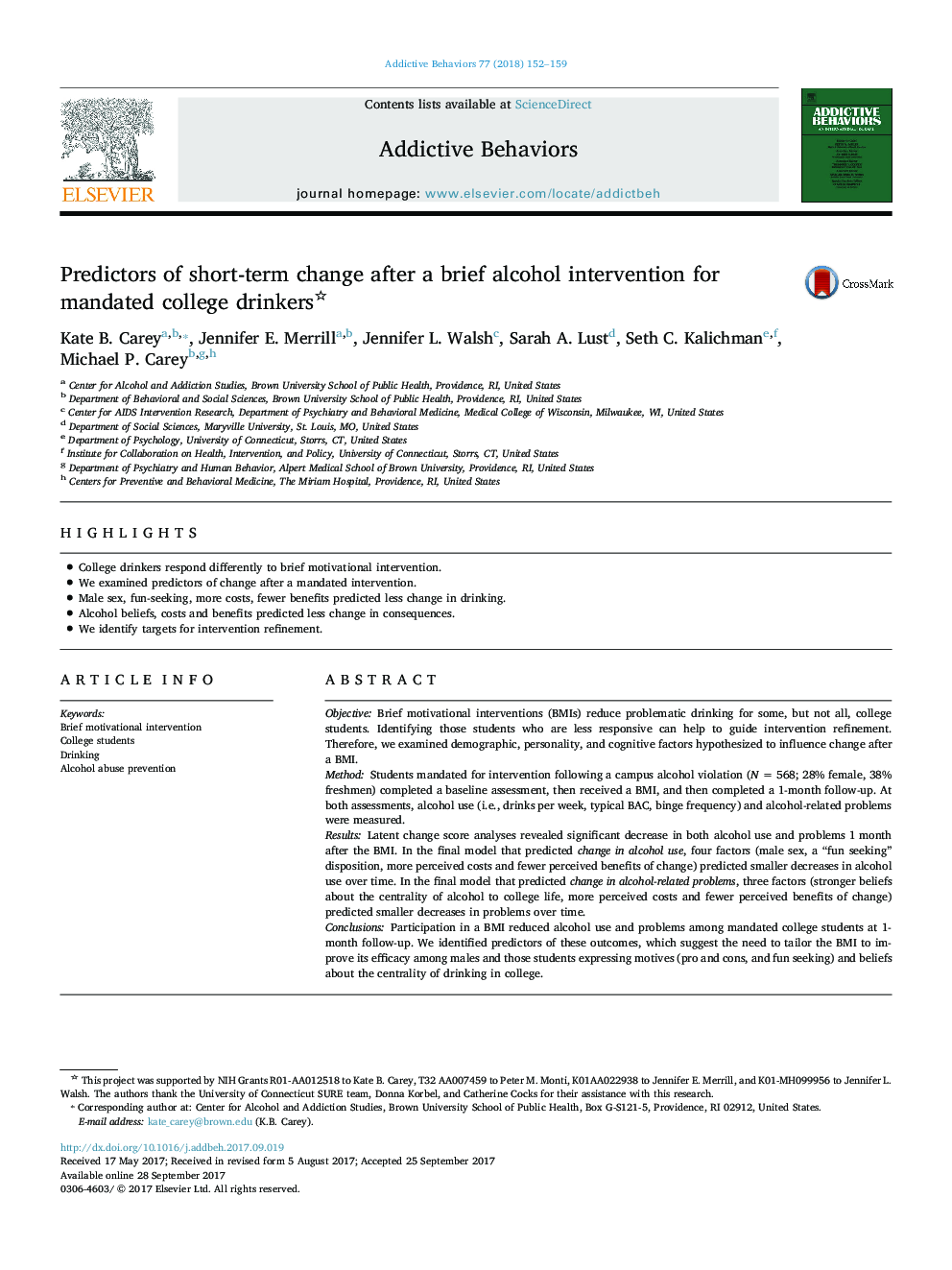| کد مقاله | کد نشریه | سال انتشار | مقاله انگلیسی | نسخه تمام متن |
|---|---|---|---|---|
| 5037543 | 1472494 | 2018 | 8 صفحه PDF | دانلود رایگان |
- College drinkers respond differently to brief motivational intervention.
- We examined predictors of change after a mandated intervention.
- Male sex, fun-seeking, more costs, fewer benefits predicted less change in drinking.
- Alcohol beliefs, costs and benefits predicted less change in consequences.
- We identify targets for intervention refinement.
ObjectiveBrief motivational interventions (BMIs) reduce problematic drinking for some, but not all, college students. Identifying those students who are less responsive can help to guide intervention refinement. Therefore, we examined demographic, personality, and cognitive factors hypothesized to influence change after a BMI.MethodStudents mandated for intervention following a campus alcohol violation (NÂ =Â 568; 28% female, 38% freshmen) completed a baseline assessment, then received a BMI, and then completed a 1-month follow-up. At both assessments, alcohol use (i.e., drinks per week, typical BAC, binge frequency) and alcohol-related problems were measured.ResultsLatent change score analyses revealed significant decrease in both alcohol use and problems 1Â month after the BMI. In the final model that predicted change in alcohol use, four factors (male sex, a “fun seeking” disposition, more perceived costs and fewer perceived benefits of change) predicted smaller decreases in alcohol use over time. In the final model that predicted change in alcohol-related problems, three factors (stronger beliefs about the centrality of alcohol to college life, more perceived costs and fewer perceived benefits of change) predicted smaller decreases in problems over time.ConclusionsParticipation in a BMI reduced alcohol use and problems among mandated college students at 1-month follow-up. We identified predictors of these outcomes, which suggest the need to tailor the BMI to improve its efficacy among males and those students expressing motives (pro and cons, and fun seeking) and beliefs about the centrality of drinking in college.
Journal: Addictive Behaviors - Volume 77, February 2018, Pages 152-159
